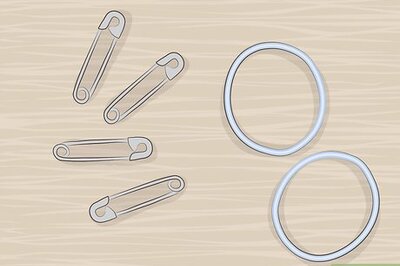
views
Some people experience intense aversion and anxiety when they see bubbles in a cup of coffee or the holes in a sponge and this condition may be an exaggerated response linked to deep-seated anxiety about parasites and infectious diseases, says a study.
Previous explanations for the condition -- known as trypophobia -- include the suggestion that people are evolutionarily predisposed to respond to clusters of round shapes because these shapes are also found on poisonous animals, like some snakes and the blue-ringed octopus.
The new research, led by Tom Kupfer of the University of Kent in Britain, suggests that the condition may instead be related to an evolutionary history of infectious disease and parasitism that leads to an exaggerated sensitivity to round shapes.
The team noted that many infectious diseases result in clusters of round shapes on the skin: smallpox, measles, rubella, typhus and scarlet fever, among others. Similarly, many ectoparasites, like scabies, tics and botfly also lead to clusters of round shapes on the skin.
The study, published in the journal Cognition and Emotion, saw the participation of over 300 people with trypophobia.
A comparison group of around 300 university students without trypophobia also took part.
Both groups were invited to view sixteen cluster images. Eight were pictures of clusters relating to diseased body parts (for example, circular rash marks on a chest; smallpox scars on a hand; a cluster of ticks).
The other eight cluster images had no disease-relevant properties (for example, drilled holes in a brick wall; a lotus flower seed pod).
Both groups of participants reported finding the disease-relevant cluster images unpleasant to look at but whereas the university students did not find the disease-irrelevant cluster images unpleasant, the trypophobic group found them extremely unpleasant.
This finding supports the suggestion that individuals with trypophobia experience an overgeneralised response, to the extent that even an image of bubbles on a cup of coffee can trigger aversion in the same way as a cluster of tics or lesions.


















Comments
0 comment